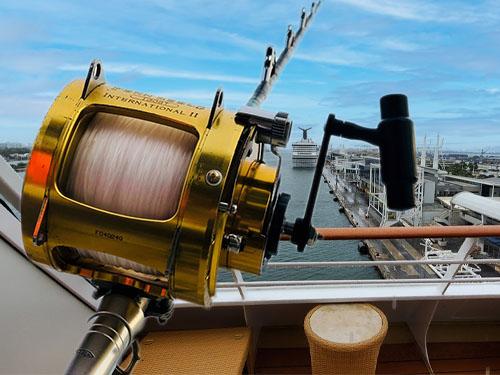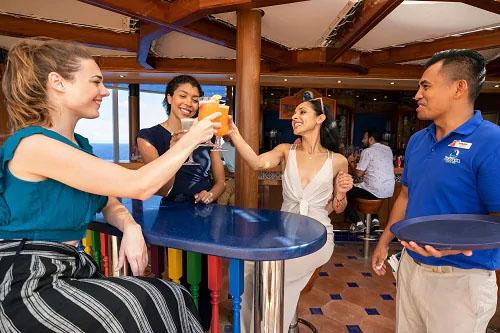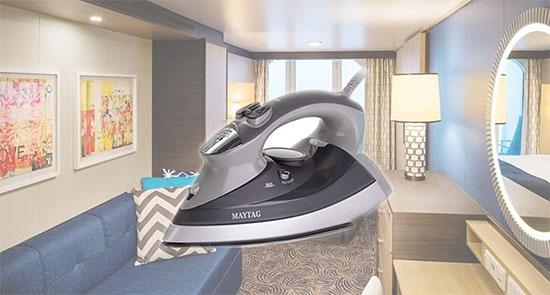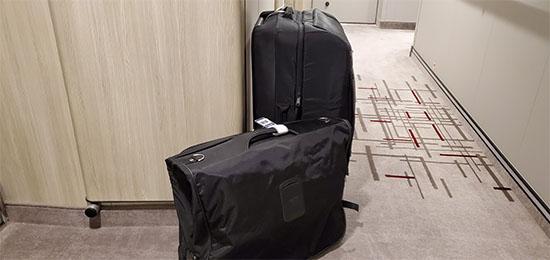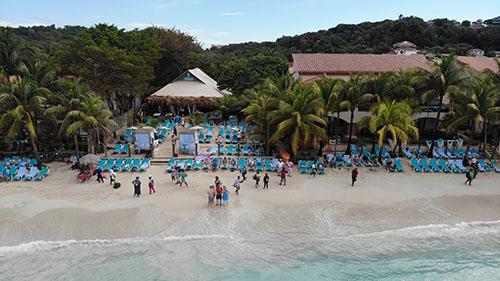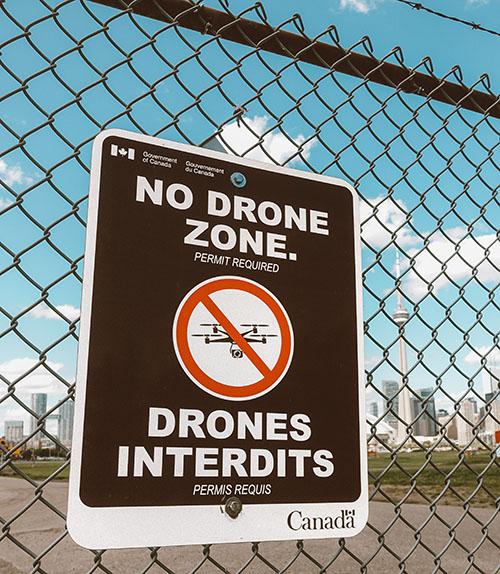No matter the cruise line or itinerary, cruising offers a wide variety of things you can do while on vacation. There are, however, some things you cannot do on a cruise. While some of the things on our list are rules related to safety or laws, other are a matter of practicality. We'll go over eight things you can't do on a cruise, and include some exceptions to those rules.
You Cannot Fish on a Cruise Ship
Water water everywhere, but not a drop for fishing. For folks who've not yet cruised, thinking you can fish on the ship can seem like a perfectly reasonable question. Once on board and underway, however, it becomes obvious there are several reasons you can't fish. For one, even on ships considered relatively small by modern standards, open decks may be 100 feet or more above the water line - over 150 feet on some larger ships. Making things more challenging is the movement - even while sailing at half speed, the ship could be traveling over 12 mph (19 kmh). Finally, it can be extremely windy high up on the open sea, so casting one direction could easily send a hook flying in the opposite direction.
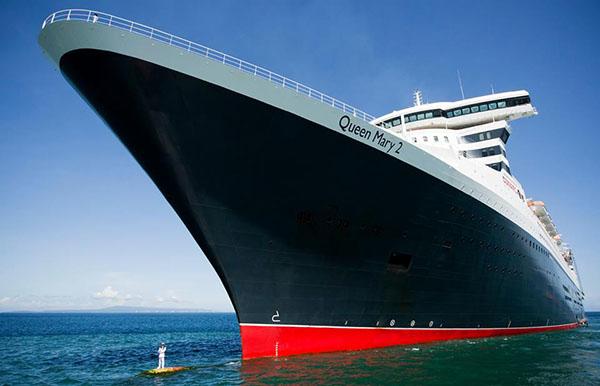
Combined, these factors just make it impractical, unlikely you'd catch anything, and of course, potentially dangerous for others on deck or even on balconies below.
You Can't Invite Friends Onboard the Cruise Ship While in Port
You're free to cruise with whoever you'd like - and we love cruising with friends! If your friends will be in the area while you're in port though, you can't invite them onboard for a tour or drinks. While this was allowed before 9/11, modern security restrictions make this mostly off-limits. Even shore side cruise line employees, media, and contractors must go through government checks and various screenings days in advance in order to be allowed onboard. We'll confess, we do miss this being an option, as years ago asking nicely, having a friend onboard, or just working in the travel industry made it easy to check out any other ship you might see in port.
There are some exceptions to this however; for one, if you're working with the cruise line to get married on the ship while in port, they may have a process to allow guests on for the ceremony and reception. In some European ports, Princess cruises even allows non-sailing guests to pay a small fee to come onboard for a few hours, have lunch, and use that money towards a future cruise if they'd like - but of course this requires advanced notice and booking.
Underage Drinking on Cruise Ships is Not Allowed
Drinking ages on cruise ships depend on cruise line policies and where in the world the ship is sailing, but contrary to popular belief, there are still minimum drinking ages on cruise ships. Most cruises sailing from North America require that guests are 21+ to consume alcohol, though there are limited exceptions. Often, sailings from Europe and other regions allow guests 18+ to drink alcohol. There are several reasons for these restrictions, ranging from laws in ports of call or embarkation, to insurance restrictions, and of course cruise lines wanting to ensure guest comfort and safety.
Despite these rules, we're not aware of any lines that restrict underage guests from entering bars and lounges, except for certain events or specific venues - they just can't drink while there. We have an article that goes line-by-line explaining the various policies, and the exceptions: How old do you need to be to drink on cruise ships?
You Can't Cook Your Own Food in Your Ship Stateroom
There is plenty of food on cruises - it's one of the things, for better or for worse, that cruising is known for. Perhaps you enjoy cooking though, or feel you might need to prepare your own food for dietary reasons; you're not able to cook your own food - at least not in your stateroom. The main reason is safety: Fire is one of the greatest dangers at sea. With limited exception (mostly to grooming accessories and kettles provided by cruise lines), you cannot have anything in your stateroom that generates heat.
If you have dietary restrictions, most cruise lines are quite good at accommodating guest needs, and we've got an article loaded with tips to help you with this, whether you're vegan, have Celiac disease, or have food allergies: How to request vegan, vegetarian, gluten-free, or kosher meals on your next cruise. Enjoy cooking for fun? While you won't be cooking up fish you caught on the ship, many lines offer cooking demonstrations, and some, like Oceania, even have special venues where chefs lead guests in cooking classes at their own kitchen stations.

Want to Iron Your Clothes on the Ship? There is a Wrinkle in Your Plan
Because for the most part, you can't bring heat-generating items on your cruise, ironing is off-limits - at least in your stateroom. Lines don't have irons to loan for this purpose either. If it's wrinkles you're worried about however, there several ways of working this out. For minor wrinkles, some guests hang up our clothes in the bathroom while taking a hot shower, and others bring anti-wrinkle sprays. If, however, you need a more robust solution, some cruise lines have self-service laundry facilities for guest use, and they often have irons and ironing boards that are free to use. We don't like spending vacation doing laundry though, so take advantage of onboard pressing, washing, and dry-cleaning services. You'll pay a premium compared to services shore-side, but it's probably a small price to pay to enjoy your cruise without chores.
Weapons and Drugs are Strictly Prohibited on Cruises
International maritime law strictly prohibits the possession of firearms and controlled substances on cruise ships, and cruise lines want to ensure the safety of all guests and crew while also complying with laws they're responsible for enforcing. There are a battery of security measures on cruise ships and in ports - both apparent and transparent. Breaking the rules could leave you subject to the consequences of laws in the port of embarkation as well as ports of call, which is why it's so important to understand the laws of the lands you're traveling to.
Even if you're doing something that is legal on land where you're boarding the ship, that doesn't change the rules and laws on the ship and in ports of call. Even if something (for example, possessing a firearm or marijuana) is legal where you're from, or where your cruise begins, that doesn't likely apply onboard or in the ports you're visiting. We go further in depth on that subject here: High on the High Seas: Can You Bring Pot on a Cruise Ship?
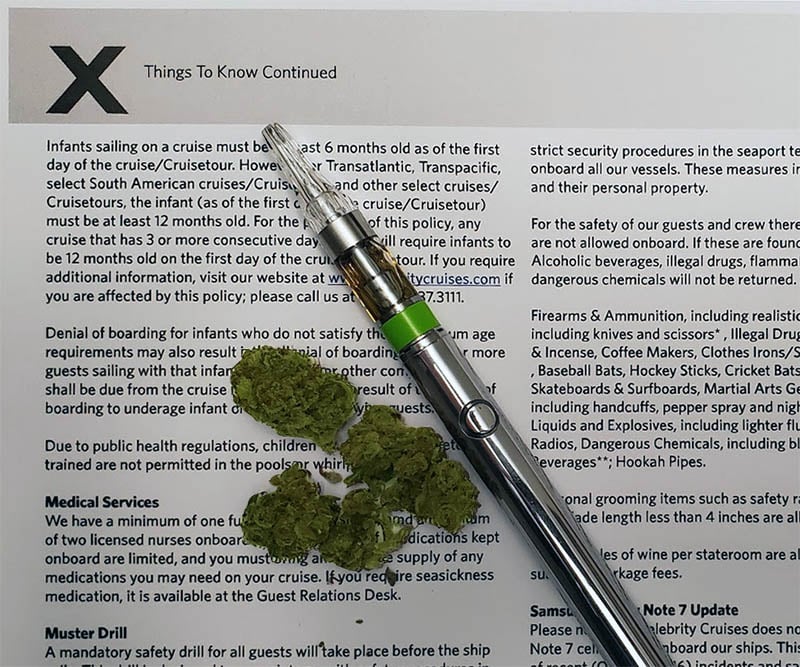
The Ship Won't Hold Your Bags on the Last Day
The last night of your cruise you'll leave your bags outside of your room and the line will ensure they're properly delivered to the port for your pick up (or in some cases, right to your return flight). Unlike a hotel however, you can't leave your bags with the cruise line (or the port) while you explore the disembarkation port on your last day - you'll need to retrieve your bags from the port before leaving the building after disembarking the ship. The reason is simply that the cruise ship and port have limited room and staff to protect your luggage as they prepare to handle hundreds or thousands of newly arriving guests and their luggage for the next cruise.
If you have a late flight and want to relax in or explore the disembarkation city, you do have options. The most flexible is to rent a car and/or a hotel day room. Depending on how you're looking to spend your time, cruise lines often offer tours for your last day where they'll hold onto your bags and take them with you to the airport at the end of the day. You can get more packing information and tips here: Cruise Packing Tips & Information
Cruise Ships Are No Drone Zones
Small unmanned aircraft, or "drones", are increasingly popular, and can absolutely lead to some amazing photos and video of your vacation. Because of a complicated combination of laws, and the risk to guest safety onboard, many lines prohibit drones. Some lines, however, now allow you to bring a drone, but do not permit you to use it on the ship (even while in port). Be sure to check with your cruise line for any restrictions they may have, or have your travel agent answer any questions.
Know that in most countries, flying drones over people, near port areas, or near airports is illegal. In addition to the need to understand drone laws in the countries you're visiting, islands and other beach areas often have strong winds that can make flying more challenging. This is another reason you can't fly a drone from a ship, as a 25 mph wind plus 18 mph sailing speed would mean you'd quickly watch your drone get left behind.


